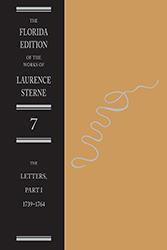Black Prison Intellectuals
Writings from the Long Nineteenth Century
Andrea Stone
Hardcover: $110.00
Paper: $35.00
Paper: $35.00
How early Black prison writing shaped Black intellectual movements
“Stone transforms our understanding of the prisoner as intellectual and thought leader.”—Jodi Schorb, author of Reading Prisoners: Literature, Literacy, and the Transformation of American Punishment, 1700–1845
“Provides a bracing history of the criminalization of Black people while underscoring the strong connections between Black incarceration and the development of Black thought and knowledge.”—Robert S. Levine, author of Race, Transnationalism, and Nineteenth-Century American Literary Studies
In this book, Andrea Stone recovers critical, understudied writings from early archives to call into question the idea that the Black prison intellectual movement began in the twentieth century. In fact, nearly two centuries before Angela Davis and Eldridge Cleaver, Black prisoners were serving as thought leaders and contributing to political movements. By illuminating their pathbreaking voices, Stone shows that prison writing from this era was a foundational part of Black American intellectualism.
Grounding her work in a history of the disproportionately high incarceration of Black Americans, Stone traces the arc of Black prison writing from 1795 to 1901. She analyzes gallows literature, court records, newspaper coverage, and parole request letters, arguing that parole requests represent an undervalued, vital literary genre. Most of the writers featured in this book were effectively treated as enemies of the state, leading Stone to a question that continues to resonate in America today: what is the distinction between criminal and enemy, and how are those categories intertwined with Blackness in the United States?
Black Prison Intellectuals sheds light on the roots of issues like structural racism and mass incarceration. Looking at an important literary tradition that contributed to the Black American intellectual movement, this book helps readers better understand the present as a moment in the long journey toward a racially just society.
Andrea Stone, professor of English language and literature at Smith College, is the author of the award-winning Black Well-Being: Health and Selfhood in Antebellum Black Literature.
Publication of this work made possible by a Sustaining the Humanities through the American Rescue Plan grant from the National Endowment for the Humanities.
- Sample Chapter(s):
- Excerpt
- Table of Contents
There are currently no reviews available












